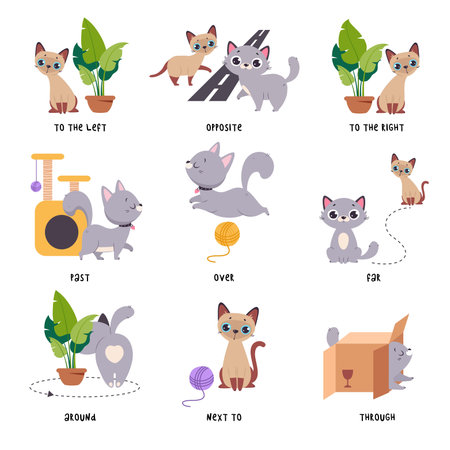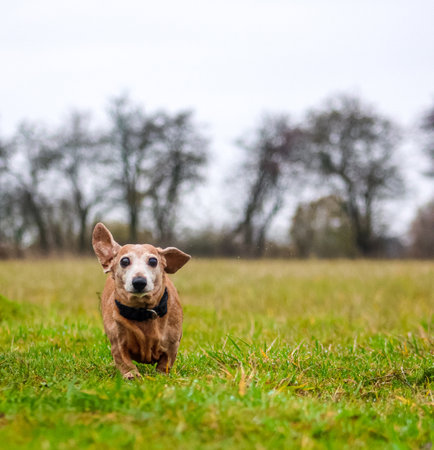Understanding Pet Bereavement in the UK
Losing a beloved pet can be an emotionally challenging experience, and in the UK, pets are often considered cherished members of the family. The grief that follows the loss of a companion animal is real and valid. In British society, attitudes toward mourning a pet have gradually shifted—open acknowledgement of pet bereavement is becoming more common, though some people may still feel hesitant to express their feelings openly. Understanding how pet loss affects emotions and recognising the role of pets in British homes is important for anyone coping with such a loss. Below is a table outlining common emotional responses and societal perspectives on pet bereavement in the UK:
| Emotional Impact | Societal Views in the UK |
|---|---|
| Sadness, loneliness, guilt, or anger after losing a pet | Increasing acceptance of grieving for pets, with support from friends, family, and even workplaces |
| Difficulty concentrating or sleeping | Pet memorials and condolence cards are becoming more widespread |
| A sense of emptiness at home | Some stigma remains, but it is gradually reducing as awareness grows |
Recognising these emotional reactions—and knowing that it is acceptable to mourn—can help individuals seek appropriate support and begin the healing process within the context of British culture.
Allowing Yourself to Grieve
Losing a beloved pet is a deeply emotional experience, and it’s important to give yourself permission to grieve. Everyone’s journey through loss is unique, so try not to compare your feelings or timeline to others. In the UK, there is a growing recognition of the significance of pet bereavement, which means you’re not alone in how you feel.
Acknowledging your emotions is the first step. It’s natural to feel sadness, anger, guilt, or even relief—each reaction is valid. Expressing these feelings can help you process your grief more healthily. Talk openly with friends or family who understand the bond you shared with your pet. If you’re comfortable, joining a local support group or connecting with organisations such as The Blue Cross Pet Bereavement Support Service can provide further comfort.
British Customs for Remembrance
In the UK, many people find solace in traditions that honour their pets’ memories. These customs can be both simple and meaningful, giving you space to reflect and celebrate your pet’s life. Consider holding a small remembrance service at home or in your garden, lighting a candle, or planting a tree in their memory. Some choose to create physical memorials such as engraved stones or keepsake boxes.
| Remembrance Custom | Description |
|---|---|
| Remembrance Service | Gathering with loved ones to share memories and say goodbye |
| Memorial Planting | Planting flowers or a tree as a living tribute |
| Keepsake Box | Collecting collars, photos, and toys as cherished mementoes |
| Candle Lighting | Lighting a candle on anniversaries or special days |
| Engraved Stone | Placing a stone in the garden with your pet’s name and dates |
Remember, grieving is not something you need to rush. By allowing yourself to fully experience and express your emotions, and by embracing British customs of remembrance if they feel right for you, you honour both your own healing process and the special place your pet held in your life.

3. Talking About Your Loss
Losing a beloved pet can feel isolating, but sharing your feelings with others is an important step in coping with grief. In the UK, there is a strong culture of reaching out for support, whether it be to friends, family, or local support networks. Talking openly about your loss helps you process emotions and allows others to provide comfort or share their own experiences. You may find it easier to talk with those who have also lost pets and understand the unique bond between people and animals.
The Benefits of Opening Up
Opening up about your grief can help relieve feelings of loneliness and sadness. It creates space for empathy and understanding, which are vital for healing. By discussing your emotions, you allow others to support you through this difficult time, making the journey less overwhelming.
Support Options in the UK
If you feel unable to talk to those close to you, consider joining a pet loss support group or speaking with a professional. The UK offers various services specifically tailored to those grieving for pets. Below is a table outlining some available options:
| Support Type | Description | Contact Information |
|---|---|---|
| Pet Bereavement Support Service (PBSS) | A helpline offering emotional support and practical advice for those mourning a pet. | 0800 096 6606 | Blue Cross Website |
| Counselling Services | Professional counsellors who specialise in grief and loss, including pet bereavement. | Your GP can refer you, or search for specialists via the BACP |
| Online Forums & Support Groups | Virtual communities where you can share your story and connect with others experiencing similar loss. | The Mix Community Forum |
How to Start the Conversation
If youre unsure how to begin, try expressing your feelings honestly: “Im finding it hard since losing my pet,” or “I really miss them.” This opens the door for supportive dialogue. Remember, theres no shame in seeking help—many Britons rely on these resources during times of loss.
4. Honouring Your Pet’s Memory
Losing a beloved pet is heart-breaking, but finding meaningful ways to honour their memory can provide comfort and a sense of closure. In the UK, there are many practical and culturally appropriate ways to remember and celebrate your pet’s life.
Create a Memory Box
A memory box is a personal collection of items that remind you of your pet. You might include their collar, favourite toy, photos, or even a lock of fur. This simple gesture allows you to revisit happy memories whenever you wish.
Participate in Local Remembrance Events
Many UK communities host pet remembrance events, such as candle-lighting ceremonies or charity walks in memory of pets. These gatherings offer an opportunity to share stories with others who understand your grief and to feel supported by your local community.
Charitable Giving in Your Pet’s Name
Making a donation or raising funds for an animal charity in your pet’s name is a thoughtful way to create a lasting legacy. Whether it’s supporting the RSPCA, Cats Protection, Dogs Trust, or a local rescue centre, this act of kindness honours your pet while helping other animals in need.
Popular Ways to Honour Your Pet in the UK
| Activity | Description | Where to Start |
|---|---|---|
| Memory Box | Collect special items and keepsakes | At home, using a decorative box or tin |
| Photo Album or Scrapbook | Create an album with pictures and stories | Online services or craft shops like Hobbycraft |
| Remembrance Events | Attend local memorials or walks for pets | Check local council websites or animal charities |
| Charitable Donation | Donate to an animal charity in your pet’s name | RSPCA, Dogs Trust, Cats Protection, local shelters |
| Memorial Plaque or Tree Planting | Erect a plaque or plant a tree in their memory | Your garden, local parks (with permission), National Trust sites |
A Gentle Reminder
You can choose one or several of these methods—there is no right or wrong way. What matters most is finding what feels meaningful for you as you honour the special bond you shared with your pet.
5. Supporting Children Through Pet Loss
Losing a pet can be especially confusing and distressing for children. It’s important to approach the topic with sensitivity, using clear and age-appropriate language. Avoid euphemisms such as “gone to sleep”, which might cause misunderstandings or fears about sleep itself. Instead, gently explain that their pet has died and will not return, offering reassurance that feeling sad, angry, or confused is normal. Encourage children to express their emotions through drawing, talking, or writing stories about their pet. Involve them in British family traditions of saying goodbye—such as creating a memory box, holding a small garden ceremony, or planting a tree in the pet’s honour. This helps children process grief in a tangible way and feel included in the farewell. The table below offers guidance on how to support children of different ages when a pet passes away:
| Age Group | How to Explain | Recommended Activities |
|---|---|---|
Toddlers (2-4 years) |
Use simple words: “Our pet has died and won’t be coming back.” Reassure them with hugs. | Draw pictures together; allow them to keep a favourite toy of the pet. |
Primary School (5-11 years) |
Answer questions honestly but gently. Let them know all feelings are okay. | Create a scrapbook, write a letter to the pet, attend a family garden ceremony. |
Teens (12+ years) |
Have open discussions; respect their need for space. Share your own feelings too. | Encourage sharing memories, joining community remembrance events, or volunteering at an animal shelter. |
If your child attends school, inform teachers so they can offer additional support if needed. Some British schools have resources or counsellors who help students manage bereavement. Remember, by openly discussing loss and involving children in rituals meaningful to your family, you foster resilience and compassion during this difficult time.
6. Looking After Your Wellbeing
Grieving the loss of a beloved pet can feel overwhelming, but taking care of your wellbeing is essential for healing. In the UK, there are many self-care strategies and resources available to help you manage grief in a healthy way.
Embrace Time Outdoors
Spending time in nature is a valued aspect of British life. Local parks, gardens, and green spaces offer peaceful surroundings that encourage reflection and calm. Consider taking gentle walks in your favourite park or along countryside paths. The fresh air and change of scenery can provide comfort and help lift your mood.
Practise Mindfulness
Mindfulness techniques such as meditation, deep breathing, or even mindful walking are popular ways to manage stress and grief in the UK. You might try joining a local mindfulness group or use apps designed for meditation. These practices help anchor your thoughts in the present moment, reducing anxiety about the past or future.
Maintain Daily Routines
Keeping up with daily routines—such as having regular meals, tidying your home, or continuing hobbies—offers stability during emotional upheaval. Routine tasks create a sense of normalcy and achievement, even on difficult days.
Self-Care Strategies: A Quick Guide
| Strategy | UK Example |
|---|---|
| Time Outdoors | A stroll through Hyde Park or your local village green |
| Mindfulness Practices | Meditation using Headspace app or joining a local class |
| Daily Routines | Making a cup of tea at set times, keeping up with household chores |
Remember
Everyone’s journey with grief is unique. Be gentle with yourself and allow time to heal. If you find it difficult to cope alone, consider reaching out to friends, family, or support groups within your community. The UKs compassionate culture encourages seeking support when needed.
7. Deciding on a New Pet
Losing a beloved pet can leave an immense void, and at some point, you may begin to wonder if you are ready to welcome another animal companion into your home. This decision is deeply personal and should be made with careful thought and self-reflection.
Reflecting on Your Readiness
Before making any commitments, take time to assess your emotional readiness. Ask yourself:
| Question | Why It Matters |
|---|---|
| Am I still grieving? | If emotions are still raw, it may be too soon for a new pet. |
| Do I have the time and resources? | Pets require attention, care, and financial commitment. |
| Am I comparing every animal to my late pet? | This may lead to disappointment and unfair expectations. |
| Is everyone in the household supportive? | A new pet affects all family members; consensus is important. |
Exploring Adoption Options in the UK
If you feel ready, consider adopting from reputable UK shelters or rescue organisations. Adoption not only gives a deserving animal a second chance but also helps address the issue of stray and abandoned pets across Britain.
| Shelter/Organisation | Website | Main Features |
|---|---|---|
| Battersea Dogs & Cats Home | battersea.org.uk | One of the UKs oldest and most respected rescues for both dogs and cats. |
| The Blue Cross | bluecross.org.uk | Provides rehoming services nationwide, with support for grieving owners. |
| Dogs Trust | dogstrust.org.uk | The largest dog welfare charity in the UK with centres across the country. |
| Cats Protection | cats.org.uk | The leading feline welfare charity offering adoption services throughout the UK. |
Things to Remember When Adopting
- Be honest with shelter staff about your lifestyle and preferences—they can help match you with a suitable pet.
- Consider older animals; they are often overlooked but can make wonderful companions.
- Visit potential pets more than once if possible—building a bond takes time.
- Take advantage of post-adoption support offered by many UK organisations.
A Thoughtful Next Step
The journey to adopting a new pet should never feel rushed or like a replacement for your lost companion. By taking your time and considering all aspects thoughtfully, you honour your past pet’s memory while opening your heart to a new friend who needs you just as much as you need them.


